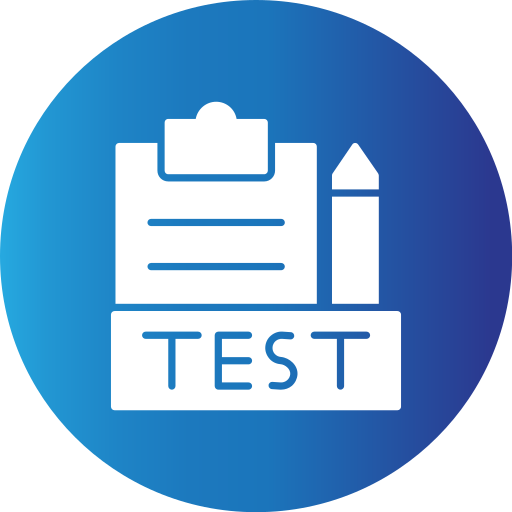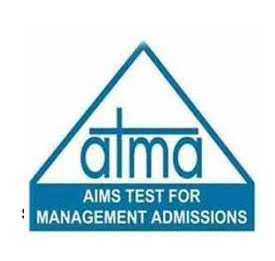BA Physical Education is a specialised course spanning 3 Years. BA Physical Education is an Undergraduate course that focuses on creating professional Physicians. This program focuses on teaching various subjects along with the study of science, which is connected with Physical Education.
The eligibility for BA Physical Education requires that the candidate must have completed their 10+2 with a minimum of 50% through a recognised board, and the candidate must have a sports achievement. Admission to BA Physical Education is based upon your sports achievements and 12th percentile. However, some universities conduct their own entrance test for interested candidates.
If looked at in terms of Job aspects, one can pursue some really exciting roles while advancing in the field. Some of the job roles candidates can pursue are Physical Education Teacher, Sports Trainer, Gym Instructor, Yoga Instructor, Sports Nutritionist, and Sports Psychologist. The average salary a student can earn after a BA in Physical Education ranges between INR 3 – 8 LPA.
Table of Contents
- BA in Physical Education Course Highlights
- What is a BA in Physical Education?
- Why Pursue a BA in Physical Education?
- BA in Physical Education Eligibility Criteria
- BA in Physical Education Admission Procedure
- BA in Physical Education Entrance Exams
- Top Colleges in India for BA in Physical Education
- BA in Physical Education Syllabus
- BA in Physical Education Jobs in India
- BA in Physical Education Vs BPEd
- BA in Physical Education FAQs
BA in Physical Education Course Highlights
Listed below are some of the basic details about the course BA Physical Education:
What is a BA in Physical Education?
A BA in Physical Education is a three-year course focusing on theory and practice concerning the topics of physical fitness, sports, and health education. Subjects studied include human anatomy and physiology, sports psychology, nutrition, biomechanics, exercise science, and coaching methods. The graduates will know how to promote physical health, design fitness programs, and nurture the well-being of the community through active lifestyles.
Why Pursue a BA in Physical Education?
Some of the reasons to pursue a BA in Physical Education are listed below:
- It opens up a series of careers: Physical Education Teacher, Sports Coach, Fitness Trainer, Nutrition Specialist, and Sports Manager.
- It also offers a strong foundation for human physiology, sports science, psychology, and nutrition needed for any effective fitness and health program.
- Active, intense, and thoughtful assignments and fieldwork will give practical skills and theoretical knowledge to the Bachelor of Arts in Physical Education students.
- Prepares graduates to work in private as well as government sectors like schools, colleges, sports clubs, fitness centres, and community organisations.
- Healthy societies are built by promoting active lifestyles and managing community fitness initiatives.
Also Check: BSc in Physical Education
BA in Physical Education Eligibility Criteria
The BA Physical Education Eligibility criteria are mentioned below:
- Candidate must have completed their higher secondary (10+2) with a minimum of 50% under a recognised university.
- Candidates with any sports achievements, such as if they’ve represented their country in the Olympics, or have won any of the championships organised by the International Federations Association, are preferred
BA in Physical Education Admission Procedure
The admission procedure for BA Physical Education may differ for different universities. To give an overview of the procedure, below we’ve listed how you can apply for admission into Lovely Professional University, Punjab.
Step 1: For Candidates to apply to LPU, they need to be eligible for admission first.
Step 2: After the candidates are eligible as per the university rules, they can apply for admission through the official website.
Step 3: Start with signing up on LPU Admit with your basic details, eg, Name, Mobile No, Email ID, State, and course interest.
Step 4: Now, fill out the application form by selecting the course you’re interested in and pay the payment fees of INR 1,000.
Step 5: You will receive a unique provisional registration number in your email. Now students need to upload their required documents, eg, their passport photograph, Date of Birth proof, Marksheet, character certificate, etc.
Step 6: Students need to submit their course fee within the timeline given by the university.
At LPU, candidates can avail of scholarships online by clearing the LPUNEST test. You can purchase a soft copy for INR 1,000. Fill it out and appear for the exam, clear it, and you’ll be provided with a scholarship.
BA in Physical Education Entrance Exams
Some universities might take direct admission, but in some institutions, candidates need to pass an entrance test to enroll for the course. Listed below are some of the Entrance Exams and their conducting body for the candidates:
Top Colleges in India for BA in Physical Education
Listed below are some of the colleges that offer BA Physical Education courses in India:
BA in Physical Education Syllabus
The BA Physical Education Syllabus is largely the same for all the universities, with a focus on improving the education quality. Listed below is the curriculum taken from Rabindranath Tagore University, Madhya Pradesh. These are some of the subjects that students may need to study during their enrollment:
BA in Physical Education Jobs in India
BA Physical Education opens up exciting opportunities for students. As a fresher in the field of Physical Education, students can pursue the roles listed below. Also, the roles and average salary are taken from sources like Naukri, Payscale, and Indeed.
BA in Physical Education Vs BPEd
BA Physical Education primarily deals with the theoretical studies of physical fitness, anatomy, and health sciences. It also serves as a more extensive academic base that is appropriate for careers in sports administration, fitness training, and wellness sectors. Whereas, BPED is a professional course focusing mainly on practical work, pedagogy, and sports coaching, which equips students specifically to become physical education teachers or coaches.
BA in Physical Education FAQs
Will this course help me improve my personal fitness and athletic skills?
Absolutely! Not just with academic learning, the course helps you focus on practical training in fitness, sports techniques, and athletic development. Along with your mastery of theoretical knowledge, you’ll get to improve your physical abilities through activities and workshops.
Is a BA in Physical Education good for those who don't make sports their profession but are generally fond of sports?
Yes. The bachelor's program in Physical Education is designed for those who are fascinated towards sports, even if they don't have a professional background in sports. The course focuses on physical practice science, coaching techniques, and health and wellness promotion.
What is the scope of BA Physical Education?
The BA Physical Education has a wide and bright scope and holds several career prospects in the realms of sports, fitness, and education. Those who have passed the graduation can be employed as physical education instructors, or coaches in schools and colleges, fitness coaches, sports managers, athletic coaches/trainers, and rehabilitation specialists. Then we have sports journalism, sports administration, and research.
What are the subjects of Physical Education BA 1st year?
During the first year of BA Physical Education, the subjects taught to students are a blend of theoretical material and practical skills. The syllabus includes subjects as Elements of Physical Education that deal with the history of the art, the goals and extent of what physical education is, and the ideas and thoughts of health and wellness.
How does a BA in Physical Education course help in the promotion of health and wellness?
With a BA in Physical Education, a person can educate and equip society with fitness programs, sports activities, and education to encourage people to live healthier. Graduates are found serving in positions most likely to include encouraging physical activity, reducing sedentary behaviour, and fostering the well-being of the community.











